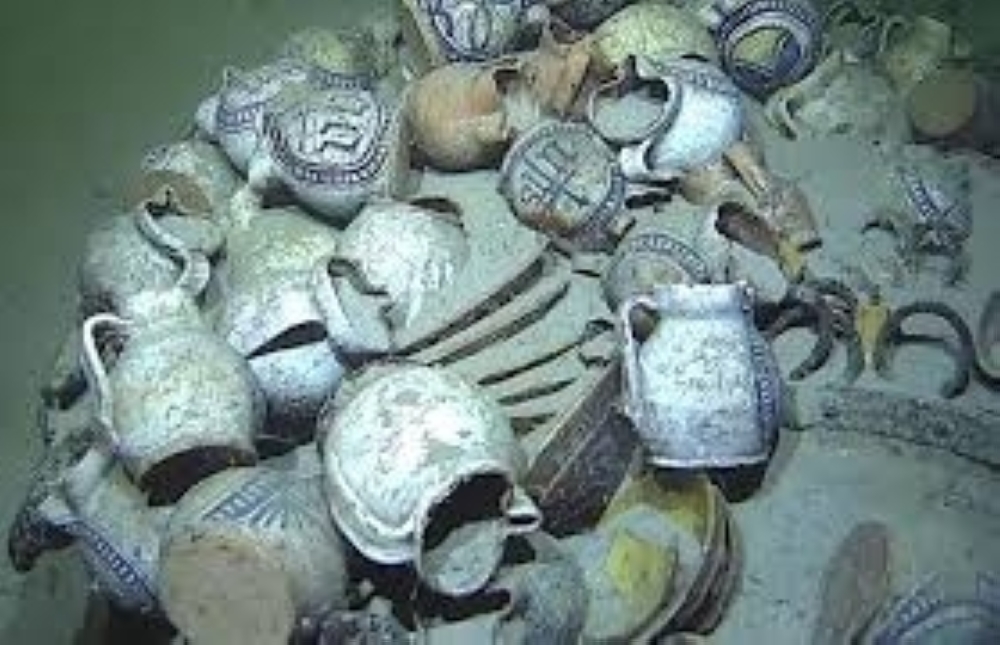

Archaeologists have uncovered what they believe are the remains of a 16th-century merchant ship, located over 2.5 kilometers beneath the surface of the Mediterranean Sea off southern France. This discovery marks the deepest shipwreck ever found in French territorial waters and potentially the world’s deepest such find in any waters. The vessel is thought to have been sailing from northern Italy laden with ceramics and metal bars when it sank. Despite some modern household waste found among the cargo—such as a soda can and yoghurt pot—the site remains remarkably well-preserved and largely intact, thanks to its extreme depth, which has prevented looting and disturbance.
The wreck was discovered unintentionally in early March by an underwater drone during a routine survey near Saint-Tropez, as part of a government project monitoring France’s deep-sea resources. The sonar initially detected a large object, prompting further investigation with high-definition cameras and an underwater robot. The site has been dubbed “Camarat 4” and features nearly 200 jugs with pinched spouts, some marked with “IHS,” the monogram of Jesus, or decorated with plant and geometric patterns. These inscriptions suggest origins from Liguria, in what is now northern Italy.
Other artifacts include approximately 100 yellow plates, two cauldrons, an anchor, and six cannons. Marine Sadania, an archaeologist involved in the project, described the site as “frozen in time,” due to its pristine state, which offers a rare glimpse into maritime history. Over the next two years, researchers plan to create a detailed 3D digital model of the wreck and analyze samples, aiming to preserve and study the site before sharing findings with the public.
This discovery far surpasses the previous record of a sunken French submarine at 2.3 km depth near Toulon. — AFP
Oman Observer is now on the WhatsApp channel. Click here


